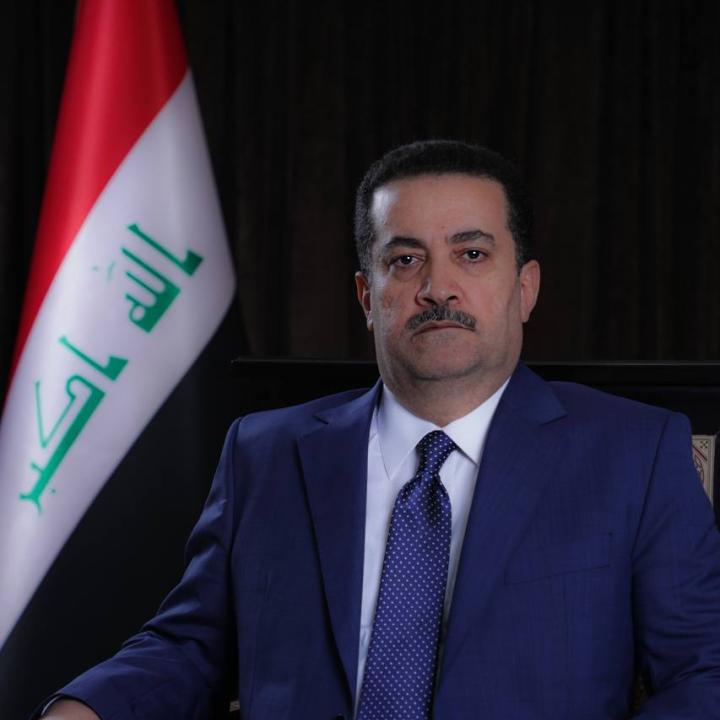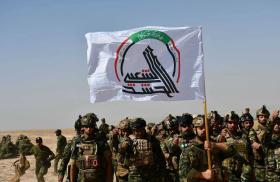
"Sudani Is a General Manager": How Militias View Iraq's New Prime Minister

Militia leaders have stated that his authority will be limited to technocratic and bureaucratic matters, while they will dictate the country's strategic direction and security decisions—including the future U.S. presence in Iraq.
On November 20, militia leader Qais al-Khazali appeared on al-Iraqiya TV to discuss the current strategies being pursued by his group (Asaib Ahl al-Haq), the wider muqawama (resistance), and the Iran-backed "Coordination Framework" that oversees Shia militia political parties, particularly their policy toward the U.S.-led coalition presence in Iraq. He began by describing their approach over the past few months: “The Coordination Framework was engaged in forming the government, [and] forming the government requires calm. Therefore, the muqawama factions gave a truce...until the selection of the prime minister and formation of the government.” This may explain the recent reeduction in kinetic operations against coalition-affiliated targets, including the logistical convoy attacks that serve mainly as propaganda stunts ("performative" or "fake" resistance).
Khazali also laid out the muqawama’s vision regarding the coalition's future presence: “The commander-in-chief [i.e., new prime minister Mohammed Shia al-Sudani] will start a [process of] genuine negotiations. I emphasize it must be genuine and not nominal or deceptive—like what used to happen in the past—to reach an agreement [shaped by] two important points: sovereignty and the constitution. This is what we are waiting to happen now.”
He noted that the muqawama are not currently pushing Sudani to start these negotiations: “There is an understanding of the size of the problems that [he] faces [and the need to give him] time." Yet he also declared that "this is a matter we will never compromise on; [ending] the military presence of the United States is non-negotiable.”
Khazali then described how the Coordination Framework and muqawama view Sudani as a “general manager." He elaborated on this role by recounting the agreement they struck with the prime minister: “The main point is that a differentiation between decisions of the state and managing the government was made...The prime minister must not monopolize the state’s decisions; rather, [he must] refer to the Coordination Framework...for strategic decisions, whether political, economic, or security. Organizing the government...is the prime minister’s business.”
If his account is true, the Iran-backed muqawama will now have a major say in Baghdad's strategic decisions, a luxury they not enjoy under previous prime minister Mustafa al-Kadhimi. Khazali took pains to emphasize this contrast during his appearance: “In the past we had objections [because] I knew that the previous government or the head of the previous government had ill intentions, so we stood against [his moves]. Right now, the prime minister is the prime minister of the Coordination Framework, therefore there is no suspicion about ill intentions.”
Khazali's comments reflect the muqawama's high confidence after subverting the results of last year's election, which they lost decisively. His commentary about "political, economic, and security decisions" being under the Coordination Framework's control indicates that Sudani's government will have limited latitude to resist militia directives on important policy choices and government appointments.




